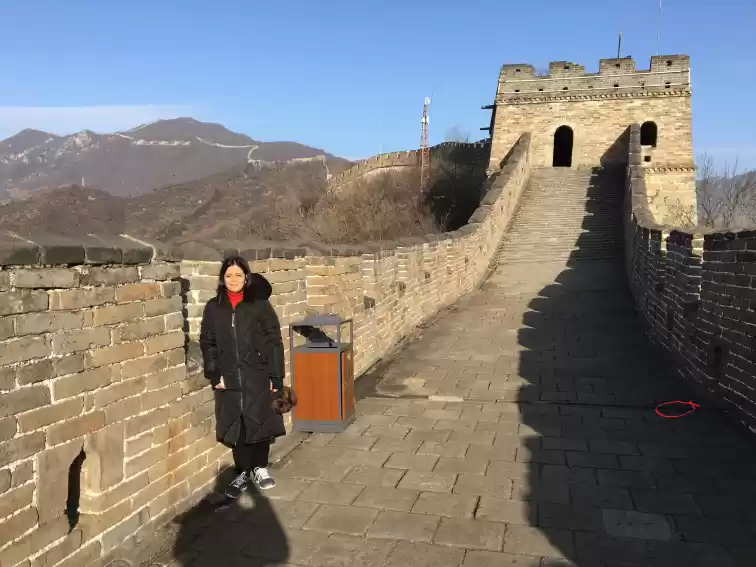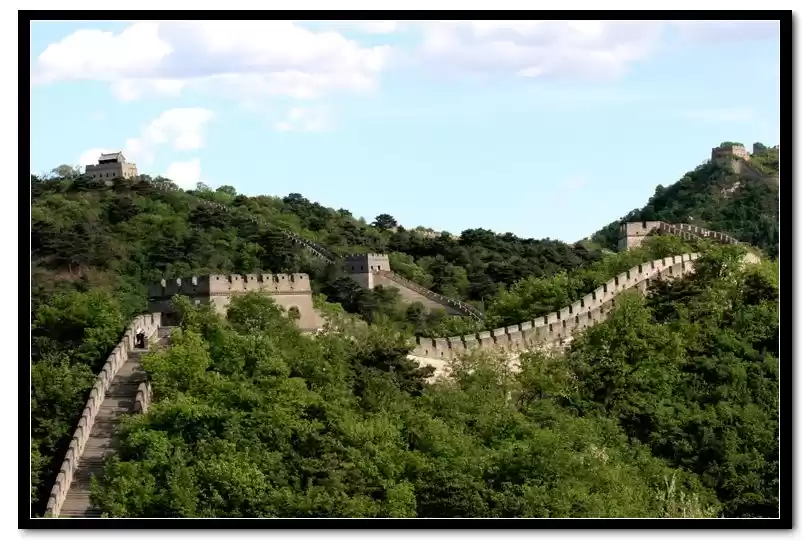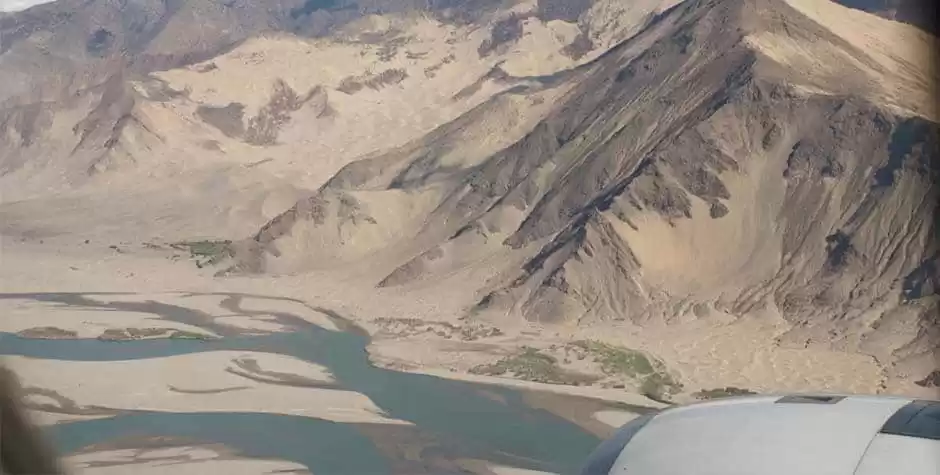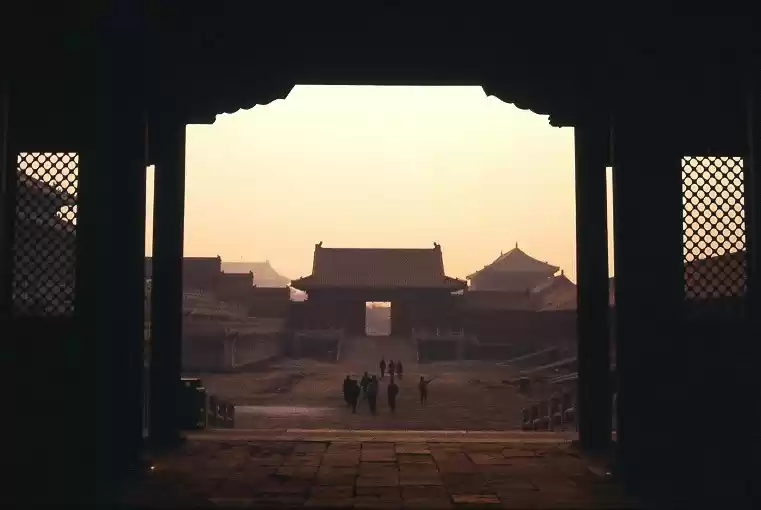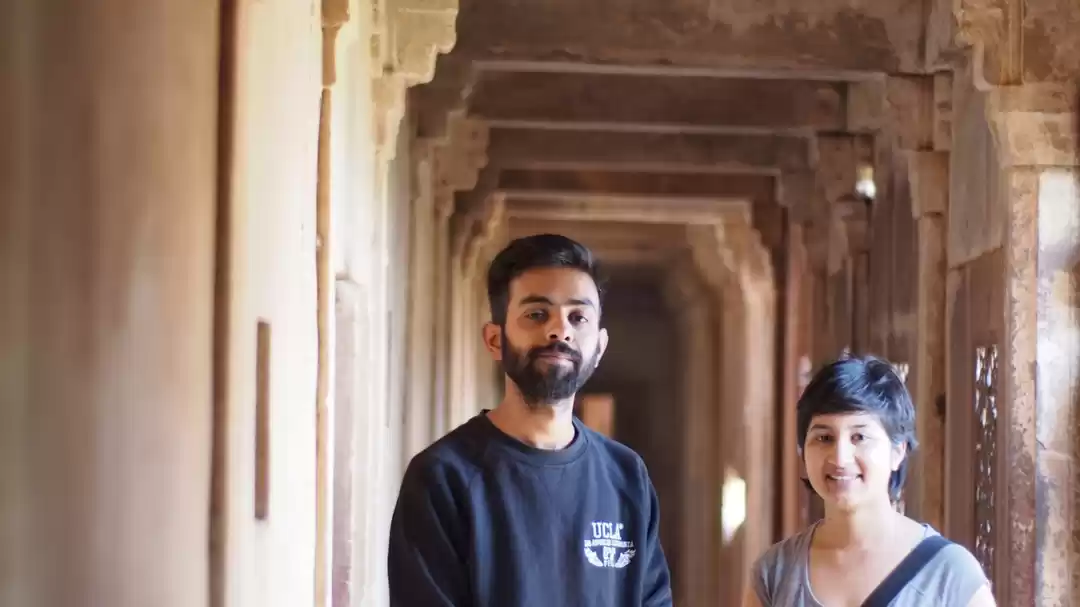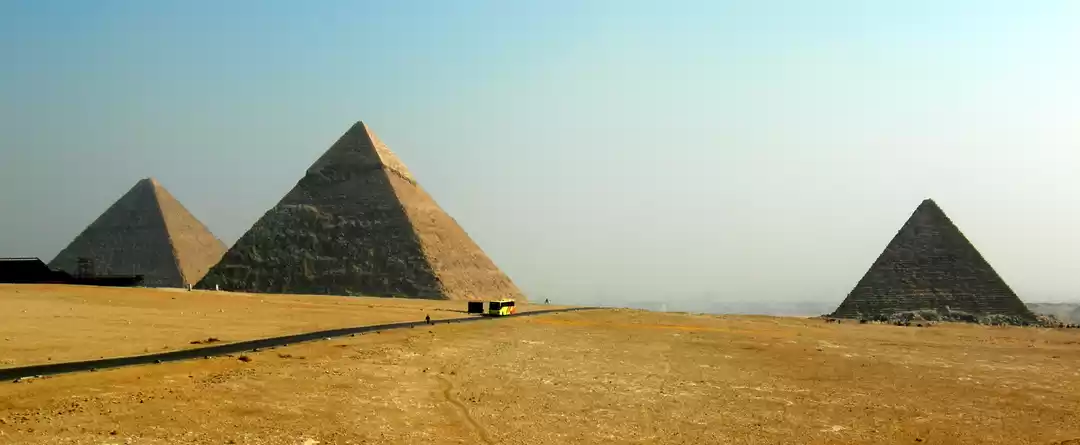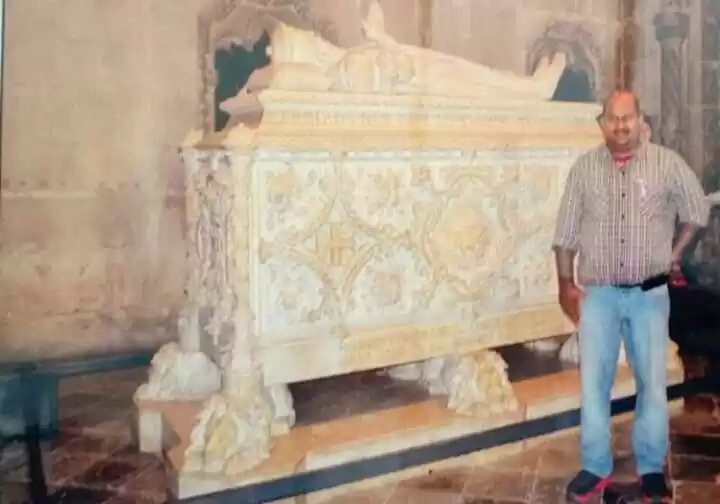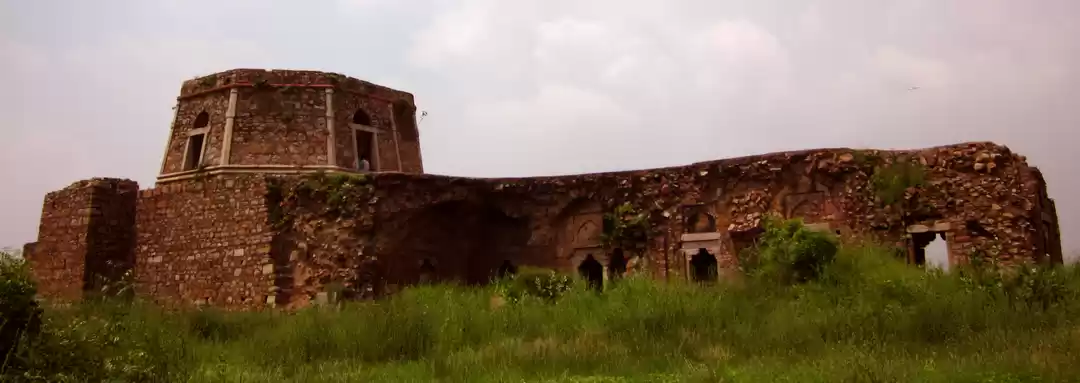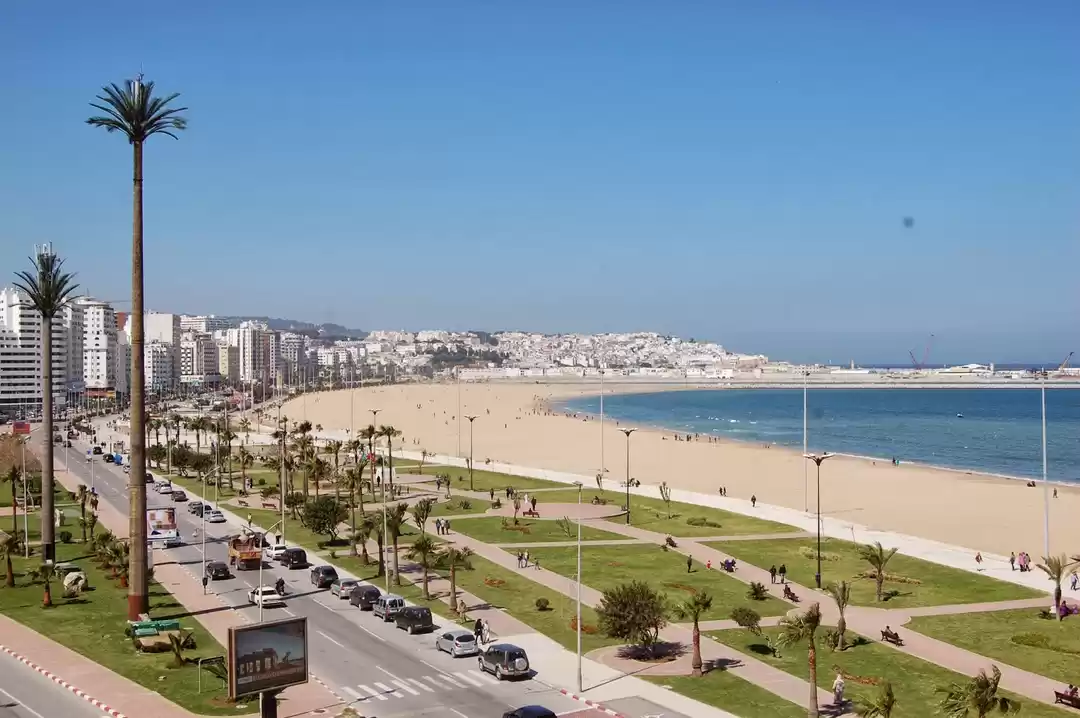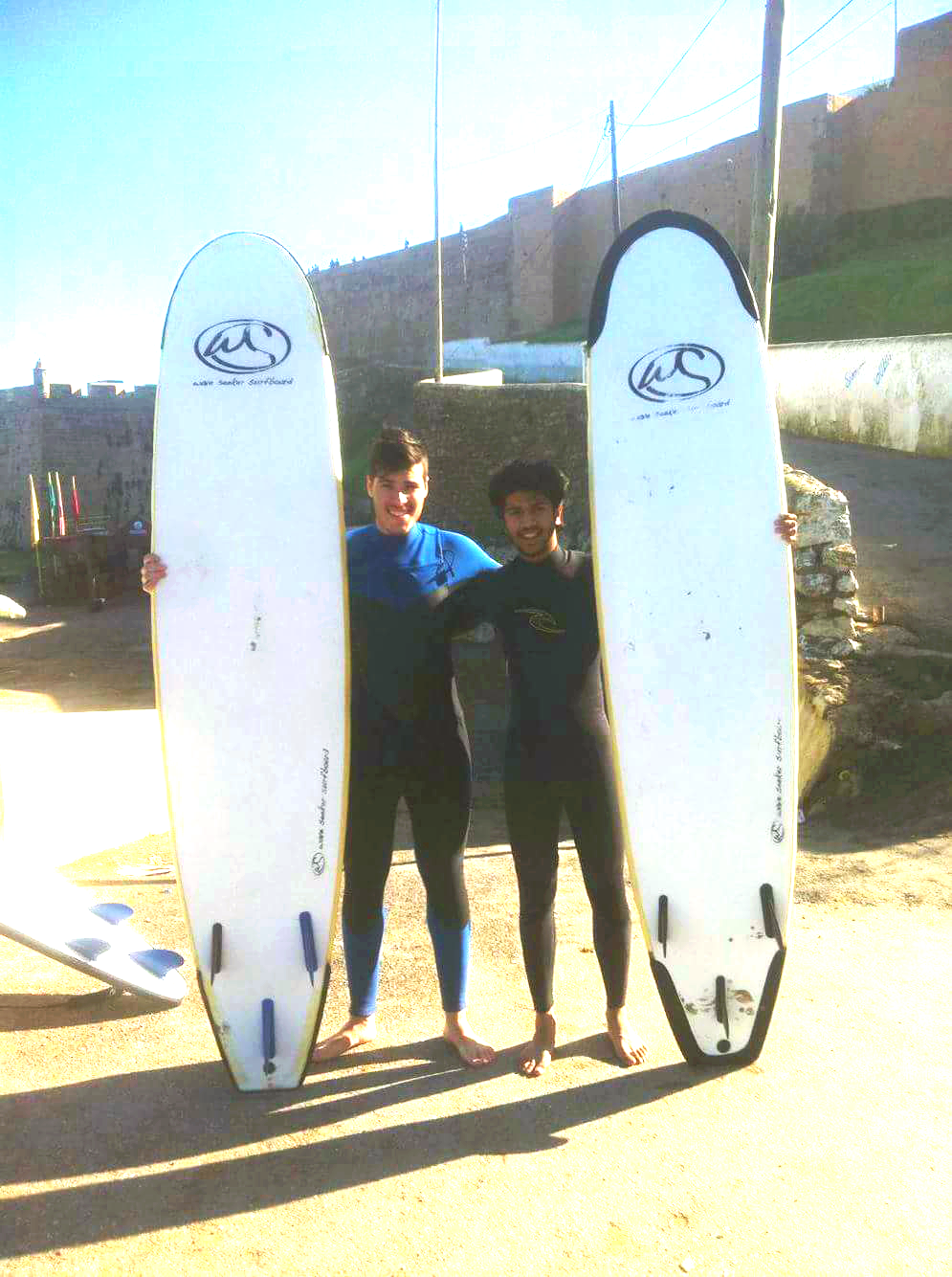If you have seen the above quote before, then you need to know about the man who said it, Ibn-E-Battuta.
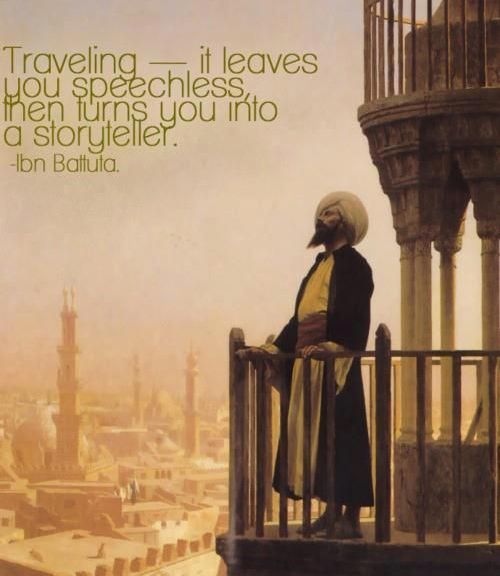
Born in Tangier, Morocco on the 24th Feb, 1304, Ibn-E-Batuta established the science of Travel Writing. He was a medieval Moroccan Muslim scholar and traveler who set out on his journey at the age of 21. When he left Morocco in 1326, little did he know that he will not be seeing his country for the next 24 years. What should have been a simple 16 month pilgrimage to Mecca, called the Hajj, took him to different corners of the world. He is widely recognized as the greatest travelers of all time. All his travels are documented in his journal called ‘The Rihla’ which translates to ‘The Journey’. A journey spanning a whopping a 30 years. His travels covered most of the Islamic world. His journeys included trips to North Africa, the Horn of Africa, West Africa, Middle East, South Asia, Central Asia, Southeast Asia and China.
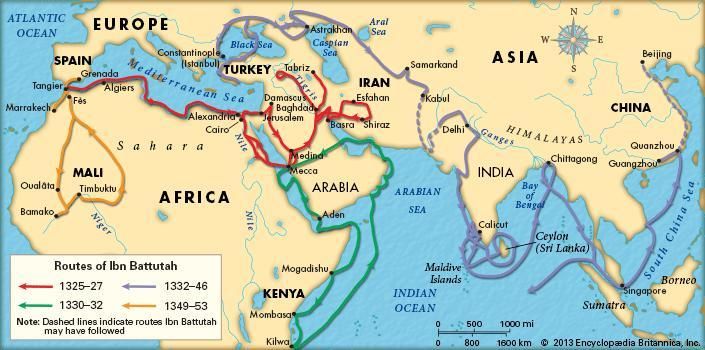
‘I set out alone, having neither fellow-traveler in whose companionship I might find cheer, nor caravan whose part I might join, but swayed by an overmastering impulse within me and a desire long-cherished in my bosom to visit these illustrious sanctuaries. So I braced my resolution to quit my dear ones, female and male, and forsook my home as birds forsake their nests. My parents being yet in the bonds of life, it weighed sorely upon me to part from them, and both they and I were afflicted with sorrow at this separation’
During those times merchants used to travel wide a far to sell their goods and make business but Battuta was one who made his living off travel. His trip to Mecca and Medina set course for the great traveler he became. 3 years in Mecca and he set out to Yemen, then to Somalia. He wanted to work under the ruler Mohammed Bin Tughlaq in India. Well he had to pass through many other countries to reach there. In 1334, he reached the iconic city Constantinople and shared a good bond with the ruling king over there. Then he set out for India via the Hindukush Mountains which was a popular passage used by many travelers.
‘I proceeded to the city of Barwan, in the road to which is a high mountain, covered with snow and exceedingly cold; they call it the Hindu Kush, that is Hindu-slayer, because most of the slaves brought tither from India die on account of the intense cold.’
He somehow reached the Delhi Sultanate and met Sultan Tughlaq. His status of a scholar gained him the post of a judge and an expert in Islamic Law. However after working for 6 years in India, he got fed up and was finding it hard to practice Islamic law in a country where most of the people are Non-Muslims. He fell out of favor with the Sultan because of the erratic behavior of Tughlaq. He tried escaping Delhi with the excuse of going for another Hajj but was turned down by the Sultan. But soon an offer came his way when he was appointed as the ambassador to the Sultanate in China and he was finally able to get away from Delhi. But his group was attacked by a group of bandits on his way to China. He was robbed and almost lost his life, but still managed to find his companions in 10 days and together sailed off to Calicut in South India. Enroute Calicut, his fleet was caught in a storm and he was again separated from his fleet. Still determined to reach China, which was the destination he had set off for, he decided to take a detour via Maldives.
In Maldives he spent 9 months. He was appointed the chief judge and even got married to the royal family. But the local politics got the better of him. So he decided to leave again and set out for Sri Lanka which led to another shipwreck and this led to him returning to Maldives again. From there he boarded a Chinese junk ship still intending to reach China. This led him to Bangladesh where he trekked across mountains to met Shah Jalal, who was a celebrated Sufi Muslim figure. After spending few days with Jalal, he decided to resume his journey to China and sailed to Sumatra. He met the Sumatran King and after spending a few days there, loaded up his supplies and sailed off to Malacca, then Vietnam and then Philippines. Finally from there he sailed and landed in China at the Quanzhou port.
In China, he met many wealthy merchants and spent his days exploring the country He traveled inland as far as Beijing before returning back to Quanzhou. He documented all his observations in his book. He wrote extensively on the Chinese lifestyle.
In 1346, he set course back to Morocco. He witnessed the rages of the Black Death on his way back. He returned home after 24 years.
There were still a few countries unknown to him. After spending some days in Morocco, he again set out for Spain and North Africa. By the end of 1353, Batuta decided to hang up his Travel Boots and decided to settle back in Morocco. He was offered the office of a judge which he he held until his death in 1368. He had narrated his journeys to a writer Ibn Juzayy which was published for the public as ‘The Rihla’.
His wanderings took him over 75000 miles and do note that this was done before any steam power was invented. A remarkable feat considering the development in transportation during that time. There were a few minor discrepancies in his book as there was no evidence to prove his visits to a few places. But he is considered as one of the greatest travelers of all time, cheating death on many occasions and not letting anything come in way of his dream. He never tried to impose his beliefs on anyone, instead learnt the different beliefs people have around the world and accepted life as it came to him, which has put forward a true picture of himself and his times.
That is a lesson on history for everyone who loves travelling, about the strong willed man who made his dream come true against all odds.
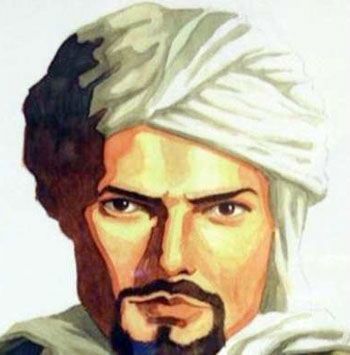
I have indeed—praise be to God—attained my desire in this world, which was to travel through the Earth, and I have attained this honour, which no ordinary person has attained.
This blog was originally published on 'PLAN. SAVE. TRAVEL.'


